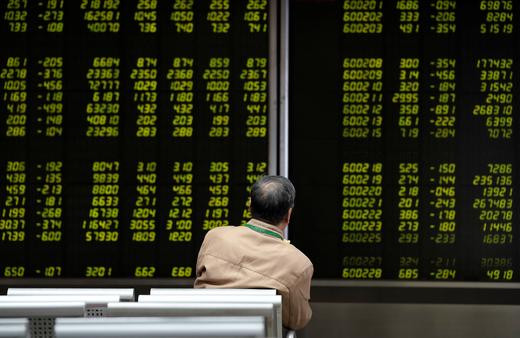Asian stock markets, except Japan and Korean equities, mostly finished higher Tuesday as traders weighed on the latest developments in the trade dispute between the United States and China.
During the weekends, United States President Donald Trump threatened that he will raise tariffs on $200 billion in Chinese goods from 10 percent to 25 percent on Friday. He also threatened to impose new tariffs on most of the exports of China to the United States.
The market was shocked with the announcement causing a decline in most equities after investors were caught off guard by the announcement. On Monday, United States Trade Representative Robert Lighthizer defended the announcement of the president in his statement as he said that China was "reneging" on is commitments after months of negotiations. He also said that the United States will follow through with the announcement of the president.
It was feared that China might cancel their commitment to the trade negotiations with the United States. Hopes of an imminent trade dal remained after the announcement from China that they will still send a delegation to Washington this week for the projected final round of talks that will start on Thursday.
The escalating conflict between the two nations caused Asian stocks and Wall Street to plunge on Monday. It, however, rebounded after the news from China was announced.
Japan's Nikkei NK fell 1.6 percent when it resumed from a 10-day national holiday in celebration for the installation of a new emperor. Hong Kong's Hang Seng Index HIS gained 0.5 percent while the Shanghai Composite SHCOMP rebounded by almost 0.7 percent after its decline of more than 5 percent on Monday. The Shenzhen Composite gained 0.7 percent, South Korea's Kospi declined 0.9 percent while the bench indexes in Taiwan Y9999, Singapore STI, Indonesia JAKIdX increased. Australia's S&P/ASX 200 XJO closed higher by 0.1 percent.
Indexes in Asia performed better following the announcement of China's Commerce Ministry that Vice Premier Liu he will visit Washington to continue the trade talks. The gains in Asia's stocks came despite market indicators that United States Stocks were about to experience another losing session.
James W. Paulsen, the chief investment strategist of the Leuthold Group, said that investors who make decisions in response to the president's volatility should brace for whiplash. He added that This is a man-made crisis that was created by a Trump trade tweet, and it can be ended by a Trump trade tweet.





